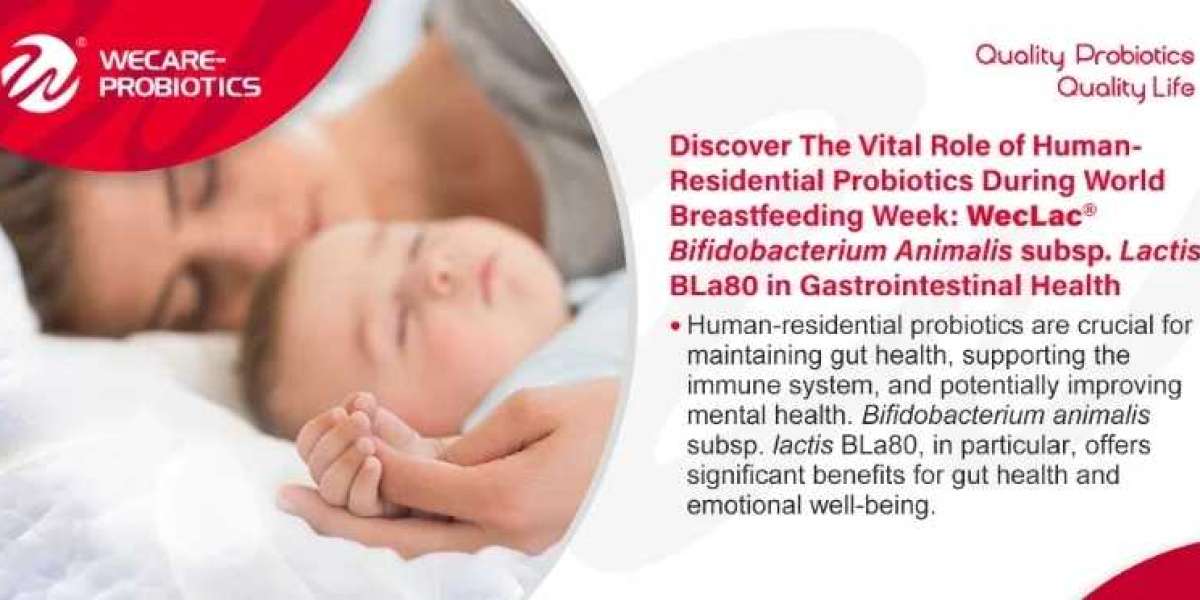
Human-residential probiotics are beneficial microorganisms that naturally reside in the human body, particularly in the gut. They play a crucial role in maintaining health and well-being.
Breast milk is a primary source of probiotics for infants. It contains beneficial bacteria such as bifidobacteria and lactobacilli, along with prebiotics like human milk oligosaccharides (HMOs) that promote the growth of these bacteria.
The transfer of probiotics from mother to infant during breastfeeding helps establish a healthy gut microbiome early in life.
Human-residential probiotics help maintain a balanced gut microbiome by inhibiting the growth of harmful bacteria. They aid in the digestion of complex carbohydrates and the production of short-chain fatty acids, essential for colon health.
These probiotics enhance the gut barrier function, reducing the risk of infections and inflammation. They stimulate the immune system by promoting the production of antibodies and enhancing the activity of immune cells.
The gut-brain axis suggests a connection between gut health and mental well-being. Probiotics produce neurotransmitters like serotonin, which can influence mood and cognitive functions.
World Breastfeeding Week
World Breastfeeding Week (WBW) is celebrated annually from August 1 to 7, promoting and supporting breastfeeding as a vital part of sustainable development.
The Objectives of World Breastfeeding Week is to inform people about the benefits of breastfeeding and the need for supportive policies and practices. To anchor breastfeeding as a part of good nutrition, food security, and poverty reduction strategies. To engage with individuals and organizations to strengthen support systems for breastfeeding mothers.
Research Findings and Health Benefits of Bifidobacterium animalis subsp. lactis BLa80
Research Insights
Bifidobacterium animalis subsp. lactis BLa80, a human-residential probiotic strain from human breast milk, has been extensively studied for its health benefits. Research indicates that BLa80 has a robust ability to survive the digestive tract's harsh conditions and effectively colonize the gut.
Gut Health
o BLa80 supports gut health by enhancing the gut barrier, promoting the growth of beneficial bacteria, and inhibiting the proliferation of pathogenic bacteria.
o It aids in the digestion of complex carbohydrates and the production of short-chain fatty acids, which are crucial for maintaining colon health.
Immune System Enhancement
o BLa80 stimulates the immune system, increasing the production of antibodies and enhancing the activity of natural killer cells, which play a crucial role in the body's defense against infections.
o It helps reduce inflammation and modulate the immune response, potentially lowering the risk of allergic and inflammatory conditions.
Emotional Well-being
o Emerging research suggests that BLa80 may positively impact emotional health. By interacting with the gut-brain axis, it can influence the production of neurotransmitters like serotonin, essential for regulating mood.
o Supplementation with BLa80 has been associated with reduced symptoms of anxiety and depression, highlighting its potential as a natural approach to supporting mental health.
Human-residential probiotics are crucial for maintaining gut health, supporting the immune system, and potentially improving mental health. Bifidobacterium animalis subsp. lactis BLa80, in particular, offers significant benefits for gut health and emotional well-being. Breastfeeding is a key source of these beneficial bacteria for infants, emphasizing the importance of initiatives like World Breastfeeding Week in promoting and supporting breastfeeding practices worldwide.








